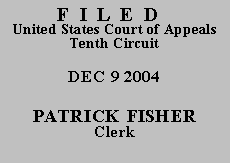

| UNITED STATES OF AMERICA, |
|
| v. | |
| KIRK IRVING KOSKELLA, |
BACKGROUND
Koskella and his co-conspirators created programs designed or advertised to reduce or eliminate federal income tax liabilities for anyone who invested money into the programs. After being charged with conspiracy to defraud the IRS and wire fraud, Koskella pled guilty and agreed to cooperate with the prosecution. Koskella's cooperation with the government fell through, and as a result he sought to obtain new counsel and withdraw his guilty plea. After a competency hearing, at which the court deemed Koskella competent, the court denied his motion to withdraw his plea.
Koskella received the statutory maximum of five years incarceration for each crime and the court ordered the sentences to be served consecutively. In addition, the court ordered Koskella to pay $14,733,439.91 in restitution, but delegated the responsibility of setting a payment schedule to the BOP and the Probation Office. Furthermore, despite its intention that the restitution should be shared jointly and severally, the court's order was not so limited.
ANALYSIS
Ordinarily, we review a district court's order of restitution de novo, but because Koskella failed to object to the order of restitution, we review it for plain error. United States v. Overholt, 307 F.3d 1231, 1253 (10th Cir. 2002).
1. Restitution Payment Schedule Must be Set by the District Court
We recently held that a district court cannot delegate the responsibility of determining a payment schedule for restitution pursuant to 18 U.S.C. § 3664. Overholt, 307 F.3d at 1256. Here, the district court's order specifically states that "Restitution shall be paid as determined by the Bureau of Prisons Inmate Financial Responsibility Program while [Koskella is] incarcerated and the United States Probation Office following [Koskella's] release from imprisonment." Thus, the court did precisely what Overholt prohibits it from doing. What is more, the government concedes in its brief that Overholt is controlling and requires reversal. Therefore, we find that the district court committed plain error when it delegated the scheduling of restitution payments.
2. Restitution Should Be Joint and Several Among Co-Conspirators
The conspiracy with which Koskella was charged involves several other persons. Currently, there are three related cases pending, none of which has yet reached the sentencing phase. If Koskella is ordered to pay full restitution and other co-conspirators are also ordered to pay restitution, the victims may collect more than their actual loss. This potential outcome contravenes the purpose of restitution and exceeds the district court's authority. See United States v. Gottlieb, 140 F.3d 865, 873-74 (10th Cir. 1998). Moreover, not only does the government support joint and several restitution, the record also shows that the district court itself intended such a result. Koskella's counsel stated that any restitution order "would be joint and several with anyone else who would be convicted of the fraud scheme in this case." The court agreed. Therefore, on remand the court should reconsider whether Koskella's order of restitution should be joint and several.
Based on the foregoing, we REVERSE and REMAND to the district court. Entered for the Court
Timothy M. Tymkovich
Circuit Judge
*. This order is not binding precedent, except under the doctrines of law of the case, res judicata, and collateral estoppel. The court generally disfavors the citation of orders; nevertheless, an order may be cited under the terms and conditions of 10th Cir. R. 36.3.
2. After examining the briefs and the appellate record, this three-judge panel has determined unanimously that oral argument would not be of material assistance in the determination of this appeal. See Fed. R. App. P. 34(a); 10th Cir. R. 34.1(G). The cause is therefore ordered submitted without oral argument.